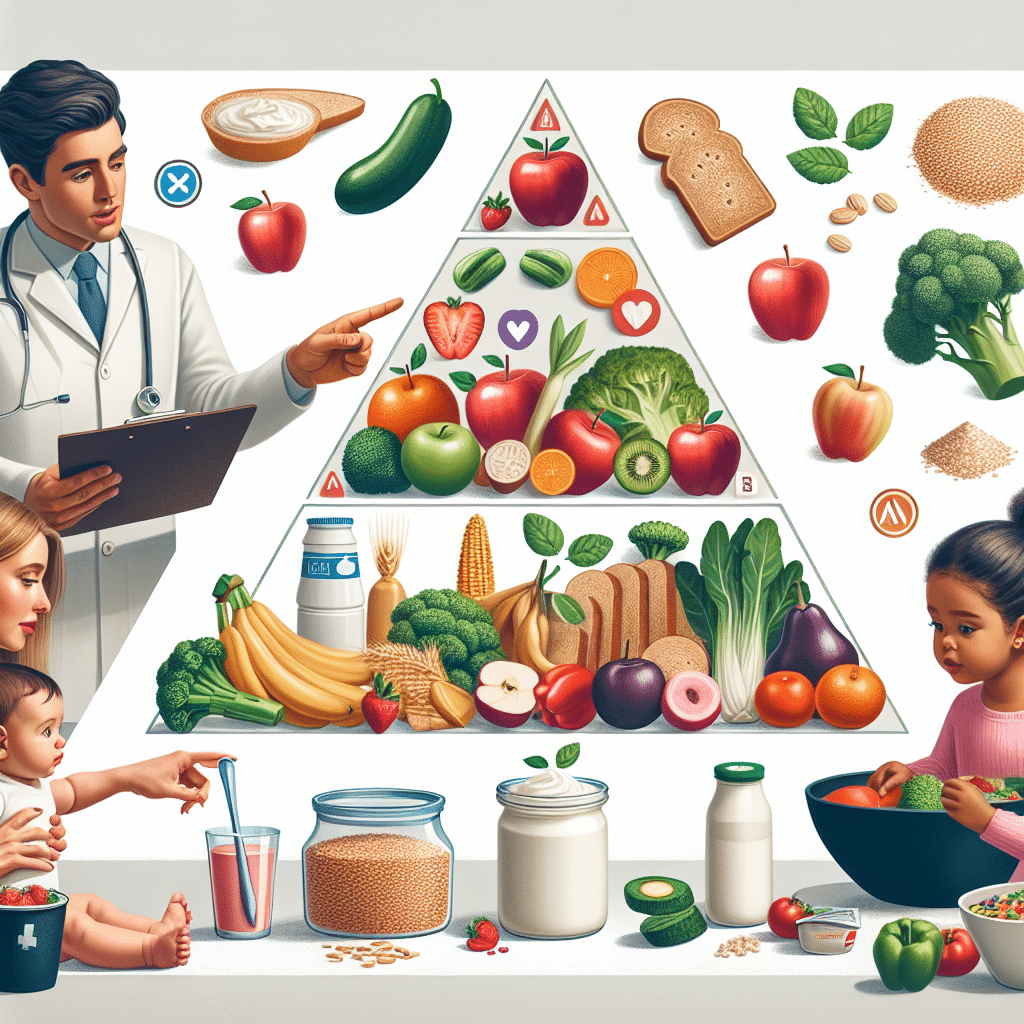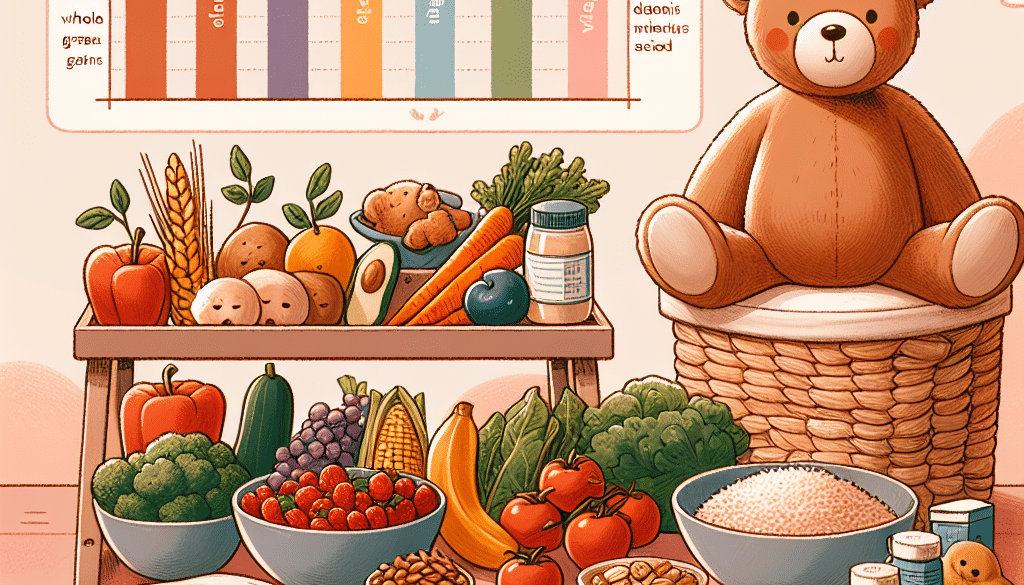Infant and Toddler Nutrition: Essential Nutrient Focus
-
Table of Contents
- Infant and Toddler Nutrition: Prioritizing Essential Nutrients
- Understanding the Nutritional Needs of Infants and Toddlers
- Key Nutrients for Healthy Development
- Protein: Building Blocks for Growth
- Fats: Fueling Brain Development
- Carbohydrates: The Energy Providers
- Vitamins and Minerals: Micronutrient Must-Haves
- Challenges and Considerations in Infant and Toddler Nutrition
- Conclusion: Laying the Foundation for Lifelong Health
- ETprotein: Supporting Nutritional Needs with High-Quality Protein Products
Infant and Toddler Nutrition: Prioritizing Essential Nutrients

Proper nutrition during infancy and toddlerhood is a cornerstone for lifelong health. The early years of a child’s life are characterized by rapid growth and development, making nutrition critically important. This article delves into the essential nutrients that infants and toddlers require, supported by current research, examples, and statistics. Understanding these nutritional needs can help caregivers provide the best start for the children in their care.
Understanding the Nutritional Needs of Infants and Toddlers
Infants and toddlers have unique nutritional requirements that differ significantly from those of older children and adults. Their diets must support their rapid growth, brain development, and the establishment of a healthy immune system. The following sections outline the key nutrients necessary for infants and toddlers and how to incorporate them into their diets.
Key Nutrients for Healthy Development
- Protein: Essential for growth, tissue repair, and immune function. Breast milk or formula provides sufficient protein for infants, while toddlers can obtain protein from dairy products, meats, and legumes.
- Fats: Vital for brain development, energy, and absorption of fat-soluble vitamins. Sources include breast milk, formula, and, for toddlers, whole milk, avocados, and fish.
- Carbohydrates: The primary source of energy. Breast milk and formula contain lactose, while toddlers can get carbohydrates from fruits, vegetables, and whole grains.
- Vitamins and Minerals: Crucial for various bodily functions. Vitamin D and calcium are important for bone health, iron for cognitive development, and zinc for the immune system. These can be found in fortified cereals, leafy greens, and meat.
Protein: Building Blocks for Growth
Protein is fundamental for the growth and repair of tissues. During the first year of life, infants typically double their birth weight, making adequate protein intake essential. Breast milk and infant formula are designed to meet these needs. As children transition to solid foods, it’s important to include protein-rich foods such as soft meats, yogurt, and pureed beans.
Fats: Fueling Brain Development
Fats are a dense source of energy and are necessary for the development of a child’s brain, which grows rapidly during the first three years of life. Essential fatty acids, such as omega-3 and omega-6, are not synthesized by the body and must be obtained from the diet. Sources of healthy fats for toddlers include fatty fish like salmon, chia seeds, and flaxseeds.
Carbohydrates: The Energy Providers
Carbohydrates are the primary source of energy for infants and toddlers. They are vital for supporting the energy demands of growing bodies and brains. While simple carbohydrates are found in breast milk and formula, complex carbohydrates from whole grains, fruits, and vegetables should be introduced as part of a balanced diet for toddlers.
Vitamins and Minerals: Micronutrient Must-Haves
Vitamins and minerals support a range of bodily functions, from bone health to immune response. Vitamin D and calcium are particularly important for developing strong bones and teeth. Iron is critical for cognitive development, and a deficiency can lead to anemia and associated developmental delays. Zinc plays a role in immune function and cell growth. Caregivers should ensure that toddlers’ diets include a variety of foods to meet these micronutrient needs.
Challenges and Considerations in Infant and Toddler Nutrition
Despite the clear guidelines on essential nutrients, many infants and toddlers do not receive optimal nutrition. Factors such as picky eating, food allergies, and economic barriers can make it challenging to provide a well-rounded diet. It’s important for caregivers to work with healthcare providers to address these challenges and ensure that children receive the nutrients they need for healthy development.
Conclusion: Laying the Foundation for Lifelong Health
Infant and toddler nutrition is a critical factor in setting the stage for lifelong health and well-being. By focusing on essential nutrients such as protein, fats, carbohydrates, vitamins, and minerals, caregivers can support the rapid growth and development that occurs during these early years. A balanced diet that includes a variety of nutrient-rich foods will help ensure that infants and toddlers develop to their full potential.
ETprotein: Supporting Nutritional Needs with High-Quality Protein Products
For caregivers looking to supplement their child’s diet with high-quality protein, ETprotein offers a range of organic bulk vegan proteins that are non-GMO and allergen-free. Their products, including rice protein, pea protein, and various seed proteins, provide excellent options for ensuring that infants and toddlers receive the essential amino acids they need for growth and development. ETprotein’s commitment to purity and quality makes them a trusted choice for caregivers and healthcare providers alike.
About ETprotein:
ETprotein, a reputable protein and L-(+)-Ergothioneine (EGT) Chinese factory manufacturer and supplier, is renowned for producing, stocking, exporting, and delivering the highest quality organic bulk vegan proteins and L-(+)-Ergothioneine. They include Organic rice protein, clear rice protein, pea protein, clear pea protein, watermelon seed protein, pumpkin seed protein, sunflower seed protein, mung bean protein, peanut protein, and L-(+)-Ergothioneine EGT Pharmaceutical grade, L-(+)-Ergothioneine EGT food grade, L-(+)-Ergothioneine EGT cosmetic grade, L-(+)-Ergothioneine EGT reference grade and L-(+)-Ergothioneine EGT standard. Their offerings, characterized by a neutral taste, non-GMO, allergen-free attributes, with L-(+)-Ergothioneine purity over 98%, 99%, cater to a diverse range of industries. They serve nutraceutical, pharmaceutical, cosmeceutical, veterinary, as well as food and beverage finished product distributors, traders, and manufacturers across Europe, USA, Canada, Australia, Thailand, Japan, Korea, Brazil, and Chile, among others.
ETprotein specialization includes exporting and delivering tailor-made protein powder and finished nutritional supplements. Their extensive product range covers sectors like Food and Beverage, Sports Nutrition, Weight Management, Dietary Supplements, Health and Wellness Products, and Infant Formula, ensuring comprehensive solutions to meet all your protein needs.
As a trusted company by leading global food and beverage brands and Fortune 500 companies, ETprotein reinforces China’s reputation in the global arena. For more information or to sample their products, please contact them and email sales(at)ETprotein.com today.














